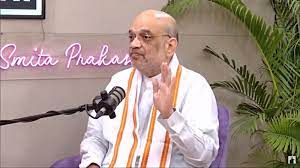
The Citizenship Amendment Act (CAA) has been a contentious issue in Indian politics, drawing both support and criticism. Central Home Minister Amit Shah has been vocal about the government’s stance on CAA, reiterating its importance amidst widespread debates. In this article, we delve into Shah’s perspective, addressing key concerns and criticisms surrounding the law.
Amit Shah’s Perspective on CAA
Amit Shah stands firm on the implementation of CAA, dismissing opposition claims regarding its timing. He asserts that delays in enacting the law were due to the unforeseen challenges posed by the COVID-19 pandemic. Shah emphasizes the rights of persecuted individuals to citizenship, reaffirming BJP’s commitment to its electoral promises.
Arvind Kejriwal’s Critique
Delhi’s Chief Minister, Arvind Kejriwal, questions the prioritization of CAA over domestic issues like unemployment. He challenges Shah on providing opportunities for Indian citizens amidst economic struggles, highlighting the need for a balanced approach to governance.
Implementation Delay Due to COVID-19
Shah addresses concerns over the delayed implementation of CAA, attributing the setback to pandemic-induced disruptions. He criticizes opposition parties for politicizing the issue, accusing them of exploiting public sentiment for electoral gains.
Opposition’s Allegations and Responses
Various opposition leaders, including Asaduddin Owaisi, Rahul Gandhi, and Mamata Banerjee, have accused the government of pursuing divisive agendas through CAA. Shah refutes these allegations, asserting the law’s humanitarian objectives and dismissing claims of discrimination.
BJP’s Promises and CAA
The BJP’s manifesto in 2019 included assurances regarding CAA, pledging citizenship to refugees from Afghanistan, Bangladesh, and Pakistan. Shah reaffirms the party’s commitment to fulfilling electoral promises, emphasizing the law’s significance in protecting persecuted minorities.
Modi’s Strong Stance on CAA
Prime Minister Narendra Modi’s unwavering support for CAA reflects the government’s determination to uphold its mandate. Shah highlights Modi’s track record of fulfilling promises, dismissing opposition skepticism as politically motivated.
Mamata Banerjee’s Stand
West Bengal Chief Minister, Mamata Banerjee, opposes CAA adamantly, warning against its implications on national security. Shah dismisses her concerns, accusing Banerjee of fearmongering and playing divisive politics for personal gain.
Owaisi’s Criticism of CAA
Asaduddin Owaisi criticizes CAA for allegedly discriminating against Muslims, questioning its constitutional validity. Shah rebuffs Owaisi’s claims, emphasizing the law’s inclusive nature and its focus on aiding persecuted minorities.
Misrepresentation in International Media
Shah condemns the misrepresentation of CAA in international media, particularly labeling it as “anti-Muslim.” He clarifies that CAA aims to provide refuge to persecuted minorities and does not discriminate on religious grounds.
In conclusion, Amit Shah’s unwavering support for CAA underscores the government’s commitment to protecting persecuted minorities. Despite opposition and international criticism, the law remains a cornerstone of BJP’s agenda, reflecting its humanitarian values and electoral promises.
 Suspense Crime Sach Ka Dam
Suspense Crime Sach Ka Dam


